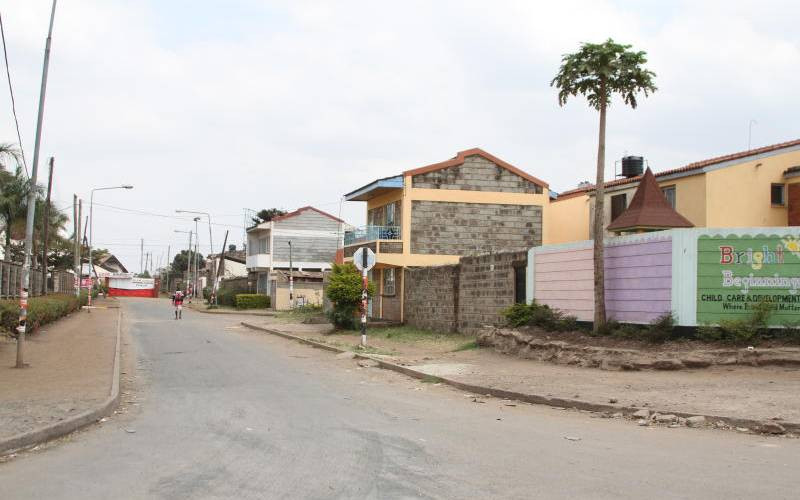
The High Court stops KTDA’s subsidiary, Chai Trading, from signing a contested security tender following a petition by activist Anthony Manyara over alleged irregularities.
Justice Moses Ado, sitting at the Milimani Commercial Court, granted interim orders on Tuesday, restraining Chai Trading from proceeding with the tender award until the case challenging the procurement process is heard and determined.
“Pending the hearing and determination of this petition, a conservatory order is hereby issued restraining Chai Trading Company Limited, their servants, employees, agents, from executing, signing, implementing or otherwise giving effect to the award of Tender Reference No. CTCL/127/2025 (KTDA/127/2025) or from in any way acting upon or performing any contract arising therefrom," Justice Ado ordered.
The order followed an urgent application filed by activist Anthony Manyara, who accused the company of breaching procurement laws and engaging in what he termed “a deliberately skewed process to lock out qualified bidders.”
The contested Tender Reference No. CTCL/127/2025 (KTDA/127/2025) pertains to the provision of security services, for which the applicant claims was irregularly awarded to a preferred bidder, Intercity Secure Homes Ltd, in violation of procurement fairness and good faith.
Manyara, in court papers, claimed that the tender process lacked transparency and fairness, adding that the winning bidder did not meet the technical and financial requirements set out in the tender documents.
“The process was shrouded in secrecy, and key provisions of the Public Procurement and Asset Disposal Act were flouted with impunity,” he stated in his affidavit.
The activist further argued that allowing the award to stand would lead to the loss of public funds and erode public trust in state-linked institutions.
He urged the court to suspend any contractual engagements until the matter is conclusively resolved.
Through lawyer Elly Okoth, Manyara told the court that KTDA, as a public entity under Article 227 of the Constitution, is required to ensure that all procurements are conducted in a fair, equitable, transparent, and competitive manner.
Mr Okoth told the court that the defendants had “unlawfully and irregularly concluded a tender process for the provision of security services and have awarded the tender to a preferred bidder contrary to the tender document, evaluation criteria, and the principles of fairness and good faith governing commercial procurement.”
He further argued that the defendants “have already initiated steps towards execution of a contract with the said bidder and are in the process of signing, or may have already partially executed, the contract, actions which may occur at any moment, thereby extinguishing the plaintiffs’ rights and rendering this suit and application nugatory.”
Mr Manyara, in a supporting affidavit, said his company was among the qualified bidders but was never informed of the outcome of the process as required by tender rules.
“To my dismay, and without any formal communication or explanation, I came to learn on or about October 19, 2025, that the defendants had irregularly and unlawfully concluded the said tender process and awarded it to another entity, contrary to the terms, criteria, and procedures outlined in the tender document,” he deposed.
Stay informed. Subscribe to our newsletter
He accused Chai Trading’s Tender Committee and KTDA of manipulating the evaluation process to favour a predetermined bidder, alleging a breach of transparency, fairness, and legitimate expectation.
“The said conduct constitutes a clear breach of legitimate expectation, violation of the tender terms, and bad faith, as the defendants acted outside the scope of their own procurement procedures and corporate governance standards,” Manyara stated.
The petitioner said they stood to suffer “irreversible commercial prejudice,” including “permanent loss of a legitimate business opportunity, severe reputational damage, and loss of goodwill and market position that cannot be adequately remedied by damages.”
Okoth told the court that while Chai Trading and KTDA are private entities not bound by the Public Procurement and Asset Disposal Act, they remain “bound by contractual fairness, transparency, and good corporate governance,” and their decisions are reviewable under common law.
He added that the balance of convenience “strongly favours preserving the status quo,” saying halting the tender’s implementation would cause no prejudice to the defendants, whereas proceeding with it would permanently prejudice the plaintiffs.
“The immediate purpose of this application is to preserve the tender subject matter pending hearing and determination of the suit. If the defendants proceed to execute the contract, performance will commence, funds will be disbursed, and contractual obligations will crystallise, thereby leaving this Honourable Court powerless to grant an effective remedy,” the court papers read in part.
Chai Trading, a fully-owned KTDA subsidiary based in Mombasa, is responsible for tea warehousing, logistics, and export facilitation for smallholder farmers across Kenya. The contested tender involved the provision of private security services at its warehouses and offices countrywide.
In response, lawyers representing Chai Trading and KTDA dismissed the claims as unfounded and politically motivated, saying the procurement process had adhered to all legal requirements. They argued that halting the tender would disrupt essential services and expose the company’s facilities to security risks.
“Upon considering the application, it is hereby ordered that the application be served forthwith and be responded to within three days of service,” Justice Ado directed.
“In the meantime, prayer two of the application is hereby granted until then,” he added.
The court fixed the matter for mention on November 4, 2025, for further directions.
A penal notice attached to the order warned that “any disobedience or non-observance of the order of the court served herewith will result in penal consequences to you and any other person(s) disobeying and not observing the same.”
Meanwhile, the court’s interim order remains in force, temporarily freezing any signing or implementation of the disputed tender.






